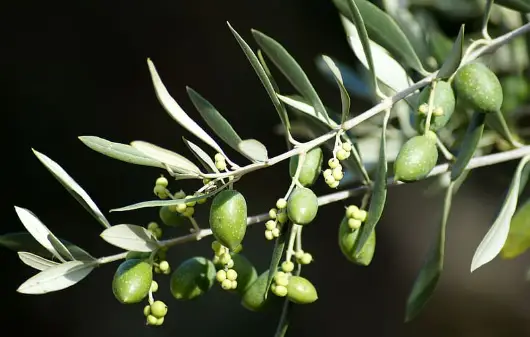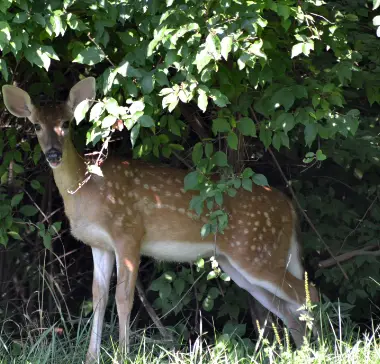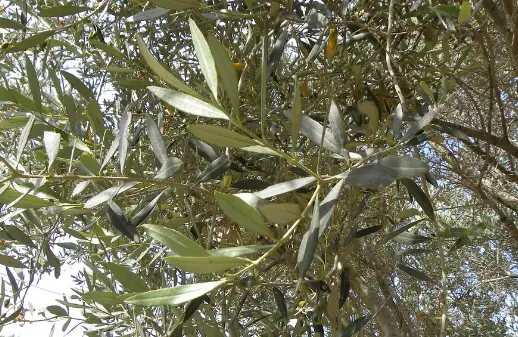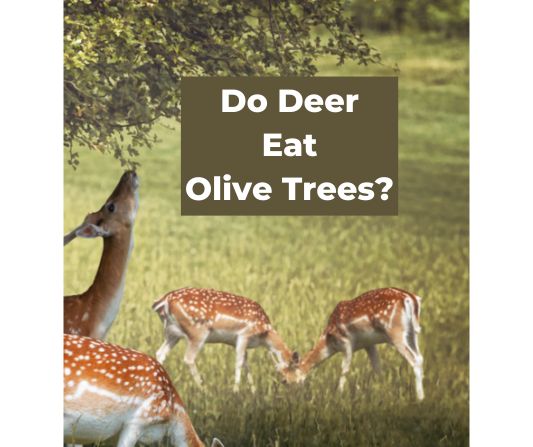Deer are known to be voracious eaters, and they will consume almost anything that is available to them. But do deer eat olive trees? Deer can and will eat the leaves and fruit of olive trees. While this may not be a problem for the deer, it can be a significant issue for olive tree growers who are trying to protect their crops.
Deer can cause significant damage to olive trees, especially when they are young and vulnerable. They can strip the leaves from the trees, which can weaken the tree and reduce its ability to photosynthesize. Deer can also eat the bark of olive trees, which can damage the tree’s vascular system and make it more susceptible to disease and pests. This can lead to stunted growth, reduced fruit production, and even death of the tree if the damage is severe enough.
We’ll cover more about deer eating olive trees and how to protect your trees in this guide.
Are Olive Trees Deer Resistant?

Deer are known to eat a wide variety of plants, including olive trees, so olive trees are not deer resistant.
In fact, deer love olive trees, so they’re especially vulnerable. Deer don’t like the leaves as much, but that won’t stop them from ravaging an olive tree.
Nutritional Benefits of Olive Trees for Deer

Olive trees provide essential nutrients such as phosphorus, magnesium, iron, and calcium, which can help support healthy antler growth in deer. The fruits of the olive tree contain high levels of monounsaturated fatty acids, which can help improve cardiovascular health in deer populations consuming them regularly.
Are Olive Trees Dangerous for Deer to Eat?
While olive trees can provide nutritional benefits to deer, they can also be dangerous for them to eat. In addition, the olives themselves can be dangerous for deer to eat in large quantities.
Olives contain a bitter compound called oleuropein, which can cause digestive issues in deer if consumed in excess. Deer are known to have a tolerance for bitter compounds and can consume small amounts of olives without issue.
What About Deer Damage To The Tree Itself?
Deer can eat the leaves of olive trees, which can weaken the tree and reduce its ability to photosynthesize.
Deer can also eat the bark of olive trees, which can damage the tree’s vascular system and make it more susceptible to disease and pests.
Most mature olive trees can withstand this type of browsing pressure from deer. The trees are known to be hardy and can recover from damage caused by deer browsing.
How to Prevent Deer from Eating Olive Trees
Deer can cause significant damage to olive trees by stripping the bark and branches, which can ultimately lead to the death of the tree. However, there are several ways to protect olive trees from deer.
Fencing
One of the most effective ways to prevent deer from eating olive trees is to enclose them with a fence. A fence will keep deer out of the area and away from the tree. It is important to choose a fence that is tall enough to prevent deer from jumping over it and sturdy enough to withstand their weight. A fence that is at least 8 feet tall is recommended.
Repellents
Another way to protect olive trees from deer is to use repellents. There are several types of repellents available, including deer repellent sprays, motion-activated sprinklers, and noise deterrents. Repellent sprays can be applied to the base of the tree and will deter deer due to their unpleasant taste and smell. Motion-activated sprinklers and noise deterrents work by scaring deer away from the area. When using repellents, it is important to combine and alternate them for maximum effectiveness.
It is also important to note that some plants are known to be deer-resistant, such as rosemary, marigold, fern, oak, witch hazel, and bittersweet. Planting these types of plants around the olive trees can help deter deer from the area.
Physical Barrier
If individual fences are not practical, an electric fence can be used to protect an entire orchard. The fence should be at least 8 feet tall and have wires spaced 6 inches apart. The wires should be electrified with a charger that delivers a low voltage shock.
In addition to fencing and repellents, other methods can be used to deter deer from the area. These include using human hair, zoo doo, or dog hair as a deterrent, pruning the trees to reduce their size and growth, and using deer-resistant plants around the olive trees.
Overall, preventing deer from eating olive trees requires a combination of physical barriers, repellents, and other deterrents. By taking these steps, olive tree growers can protect their trees from deer damage and ensure a healthy harvest.
Can Deer Eat Olive Trees?

Deer are known to be voracious eaters and will consume almost anything that comes their way. Olive trees are no exception to this rule. While some sources suggest that olive trees are less attractive to deer than other plants, others claim that deer will happily eat olive trees if given the opportunity.
Deer love to eat the tender, juicy ends of young olive trees, and they can cause significant damage to the tree by eating its bark, buds, and fruits. They can also strip an entire tree of its leaves in a single day, which can be particularly harmful to the tree’s growth and development.
It is important to note that the deer resistance of olive trees depends on a variety of factors, including the tree’s size and location, as well as the deer population in the area. Growers in rural areas often put up 10-foot fences around their orchards to protect their olive trees from deer.
Fortunately, deer do not like olive leaves, which is good news for olive tree growers. Once established, olive trees require little or no water, and they can grow in a variety of soil types.
Check out our other tree guides while here:

